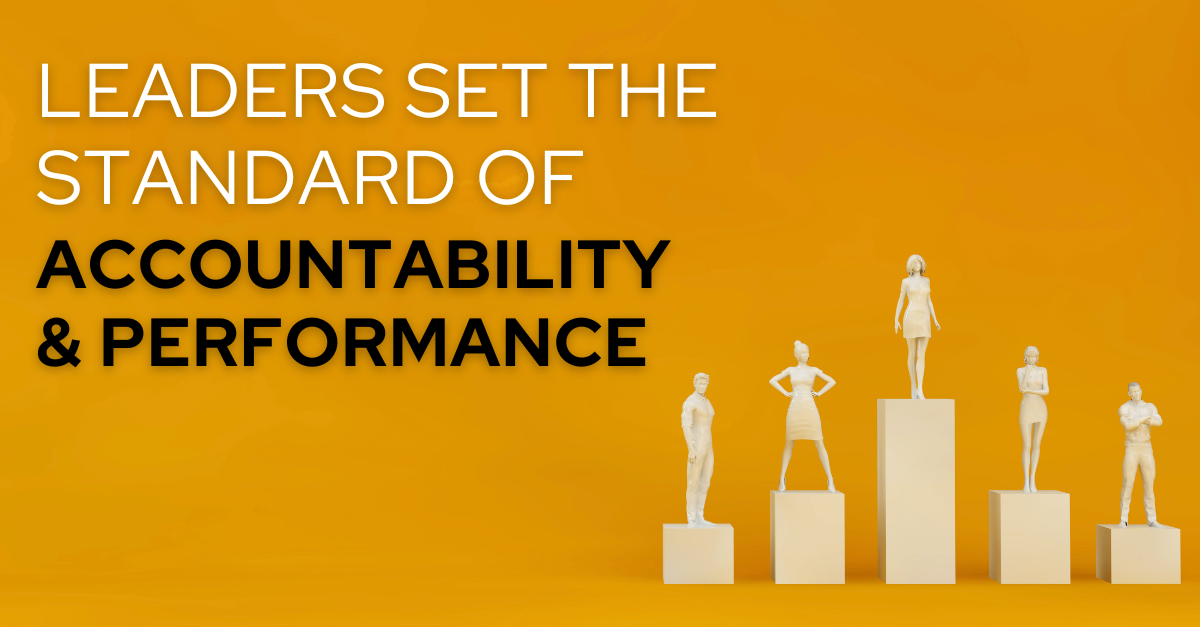In the book Strengths Based Leadership, the authors cited a major study that determined the basic needs followers want their leaders to meet. The top 4 follower needs are:
- Trust
- Compassion
- Stability
- Hope
The commonality among these needs is that they are all emotional needs primarily influenced by the relationship employees have with their immediate manager. Unfortunately, far too many managers are hesitant to build strong personal relationships with their subordinates. Their reluctance is based on a misguided notion that it is somehow unprofessional to do so, or an unfounded fear that it will make their staff more difficult to ‘manage’ if there are performance issues. Nothing could be further from the truth. In fact, a recent literature review I conducted revealed that one of the most damaging traits managers can exhibit is the tendency to be impersonal.
Managers Hold The Keys
According to a recent Gallup study, an employee’s direct manager influences as much as 76% of employee’s discretionary effort and commitment to the organization (employee engagement). Having strong connections with the people you lead is the equivalent of possessing the keys to engaging them. There is no other quick leadership technique or method to build trust, hope, a sense of stability and compassion in the workplace.
5 Strategies to Build Stronger Relationships With Your Staff
Exceptional managers get to know their staff in order to learn how to help them achieve their personal best in their careers. Managers do this by gaining a better understanding of their employee’s unique talents and motivations and determining how to focus and unleash that drive at work.
Here are a few ways to do that.
1. Discover Their Unique Strengths
Managers who focus on building their employee’s strengths rather than beating them up for their weaknesses are proven to deliver better results. Their employees are more engaged, perform better, and are less likely to leave their company.
Think about how you can help your employees develop their strengths to become the company expert in their area of proficiency.
2. Find Out What Motivates Them
Most managers mistakenly believe that whatever motivates them also motivates their employees. Instead of assuming, ask them. Their answers should give you a good indication of how you can align their tasks and roles to best engage their natural strengths and motivation.
3. Discover How They Like To Be Recognized
Many well-intentioned managers have gone out of their way to recognize an employee for good performance only to find out that the form of recognition they used was not appreciated by, and perhaps even embarrassed the employee. Avoid making that mistake. Ask them how they like to be recognized for their accomplishments. Then make sure to recognize their achievements and quality work accordingly, and do it often.
4. Get To Know Your Employees On More Than One Dimension
Many managers engage in small talk with their employees about the one or two things they know about them without actually having a real conversation with them. Superficial chit-chat doesn’t build rapport and trust. Show genuine interest in your employees by asking more meaningful questions about their interests.
5. Share Something Personal
I once had a manager who intentionally engaged in chit-chat to build rapport with his staff. Unfortunately, it didn’t work because he never divulged anything about his personal life. He never discussed anything he thought might make his staff think of him as less than the COO. Staff morale was horrific, in large part because no one could relate to him.
The most powerful way to build relationships with subordinates (or with anyone for that matter) is to share parts of your life with them that are near and dear to you. It shows them you are human. It makes you approachable.
As you engage your staff in purposeful dialogue with a sincere interest in their well-being and success, you will unlock energy and talent that you didn’t even know was there, and performance that you didn’t know was possible.
______________________________________________________________________________________
For more information on this topic check out our What Really Motivates Workshop.








5 Responses
i agree with what you have said, but I have a question. In a management position that I previously held were I oversaw about 50 employees, I was very good at building both a managerial relationship as well as a personal one. Most times I had no issues moving from personal conversations to work related conversations. However, there were always certain employees who could not make the switch from one to the other. One in particular I had to take aside and let her know how inappropriate it was for her to speak to me in the way that she did. For those employees who can’t make this switch, what do you do? Should you be treating certain employees differently then others?
Thanks!
Hey Mackinlay, thanks for your comments.
The short answer is yes, it is absolutely ok to treat employees differently. Each person has individual needs and preferences, and leaders who get to know them, as you did that one employee, understand how best to respond to those needs. In the case you outlined above, I think you were right to help her know where to draw the line. A good way to do that, instead of telling, is asking a question. For example, you could say: “I enjoy our conversations (employee name). But I’m a little concerned. How do you think others might react if they heard what you just said to me?” Then follow up and ask her what comments she thinks are appropriate in the workplace, and which are not.
What do you think about that approach?
Great idea. I did not think about asking the questions so that they can be the ones to come to the realization that their comment may not have been appropriate.
Good post but in the real world I wounder how many managers really care about the base needs the followers want their leaders to meet. I know that is the point you are making about being an effective leader. In most things in life it is all about the CARING.
That’s a good point. I emphasize in some of my other articles the benefit managers gain from engaged employees. That’s great feedback. Next time I will make sure that I emphasize the “what’s in it for me” aspect a little more.